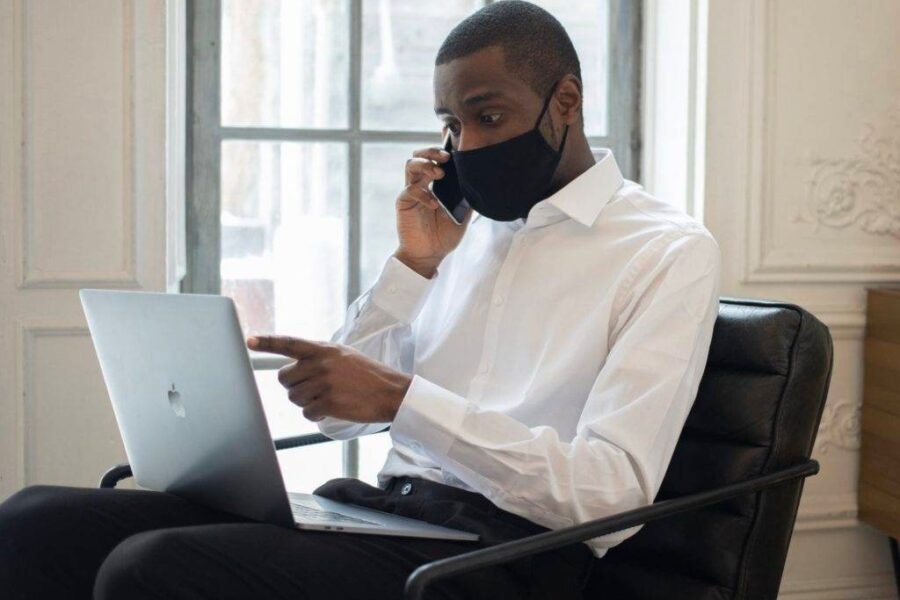Seeing a Child Protective Services (CPS) worker at your door can be a frightening experience. Your immediate reaction might be to ignore the knock, hoping they will simply go away. However, choosing not to answer the door for CPS can have serious consequences, potentially escalating a simple inquiry into a significant legal problem. Understanding what happens next is crucial for protecting your family and your rights.
What CPS Does Immediately After You Don’t Answer
When a CPS caseworker knocks on a door that goes unanswered, their job does not stop. They are legally required to follow up on reports of child abuse or neglect to ensure a child’s safety. Ignoring them is not a solution.
The caseworker will likely make a note of the refusal to answer. They may try to contact you by phone if they have your number, or they might leave a card with their contact information asking you to call them. Their immediate goal is to make contact and assess the situation.
In many cases, they will return at a different time of day. They might also begin speaking with other people who know your family, such as neighbors, to ask if they have seen the children recently and if everything seems okay.
The Legal Authority of Child Protective Services
Child Protective Services operates with a legal mandate to investigate any credible reports of child endangerment. This authority is granted by state laws designed to protect children from harm. They are not a police force, but they are a government agency with the power to intervene in family life to ensure a child’s well-being.
This means they cannot be ignored. While you have rights, their duty to protect a child often gives them the legal backing to pursue an investigation even without your cooperation. Their primary responsibility is to the child, not the parent.
How Not Answering Can Escalate the Situation
Choosing not to open the door often makes the situation worse. From the perspective of a CPS worker, an unanswered door can be a red flag. It may suggest that the parents are hiding something, that the child is in immediate danger, or that the allegations in the report are true.
This suspicion can cause them to accelerate their investigation. What might have been a simple check-in can turn into a more intensive process. Your lack of cooperation can be documented and used in court proceedings later on. It may be interpreted as evidence of non-compliance or an unwillingness to ensure a safe environment for your child.
The caseworker may take several steps if they feel the situation is urgent:
- Contacting Law Enforcement: If the report alleged immediate danger, CPS might return with a police officer to conduct a “welfare check.”
- Seeking a Court Order: The agency can go to a judge and request an order that grants them legal permission to enter your home.
- Interviewing Collateral Contacts: They will likely speed up the process of talking to teachers, doctors, relatives, and anyone else listed in the report to gather more information.
Your Rights When CPS is at the Door
Even though cooperation is advised, it is vital to know your rights. You are not required to give up your constitutional protections just because a government agent is at your door. Answering the door does not mean you have to let them inside without a warrant.
You have the right to ask the caseworker for their identification and the reason for their visit. You can step outside to speak with them, keeping the door to your home closed. You are not legally obligated to allow them inside your home unless they have a court order signed by a judge. It is often recommended to be polite and cooperative but firm about your rights.
You also have the right to tell the caseworker that you will not answer any questions until you have spoken with an attorney. This is a reasonable step to take to ensure you do not say something that could be misinterpreted.
Why Cooperation is Often the Best Path Forward
While you have the right to refuse entry, working with CPS can lead to a faster and less stressful resolution. Cooperation allows you to tell your side of the story and show the caseworker that your children are safe and well-cared for. It demonstrates that you have nothing to hide and are concerned about your child’s welfare.
Refusing to engage can prolong the investigation, cause unnecessary stress for your children, and lead to more invasive legal actions. The key is to find a balance between cooperating and protecting your legal rights. Consulting with a lawyer can help you navigate this difficult process effectively.
Here is a simple breakdown of the potential outcomes:
| Action Taken | Potential Positive Outcome | Potential Negative Outcome |
| Cooperate with CPS | The investigation may close quickly if no issues are found. | You may say something that is misunderstood or used against you. |
| Do Not Answer the Door | You temporarily avoid a difficult conversation. | CPS may escalate the case, involve police, or seek a court order. |
What Happens if CPS Obtains a Court Order
If you continually refuse to cooperate and CPS has reason to believe a child is at risk, they will likely seek a court order. This is a legal document signed by a judge that compels you to cooperate. It can grant them permission to enter your home, with or without your consent, often with the assistance of law enforcement.
Once a court order is issued, you no longer have the right to refuse entry. Ignoring a court order can lead to serious legal consequences, including being charged with obstruction of justice. At this stage, the situation has become a formal legal matter, and the stakes are much higher for everyone involved, especially your children.
Frequently Asked Questions
What if I’m not home when CPS comes to my door?
If you are not home, CPS will typically leave a card with their contact information. They will try to visit again or call you to schedule a meeting. It is advisable to call them back promptly to show you are willing to cooperate.
Can CPS take my child just for not answering the door?
Not answering the door alone is usually not enough to remove a child. However, if CPS has other credible evidence that your child is in immediate danger of serious harm, your lack of cooperation could contribute to their decision to seek an emergency removal order from a court.
Do I have to let CPS in if they bring the police with them?
If the police are there for a simple “welfare check,” you may still be able to refuse entry without a warrant. However, if they have a court order or warrant, you must let them in. Ask to see the paperwork before opening your door.
How does refusing to cooperate affect my case in court?
Refusing to cooperate can negatively impact your credibility in family court. A judge may view your actions as a sign that you are hiding something or are not prioritizing your child’s safety, which could influence custody decisions.
Should I speak to a lawyer before I speak to CPS?
It is highly recommended to consult with an attorney experienced in family law or CPS cases as soon as you are contacted. A lawyer can advise you on your rights and help you communicate with the agency in a way that protects your family and resolves the investigation efficiently.






Leave a Comment